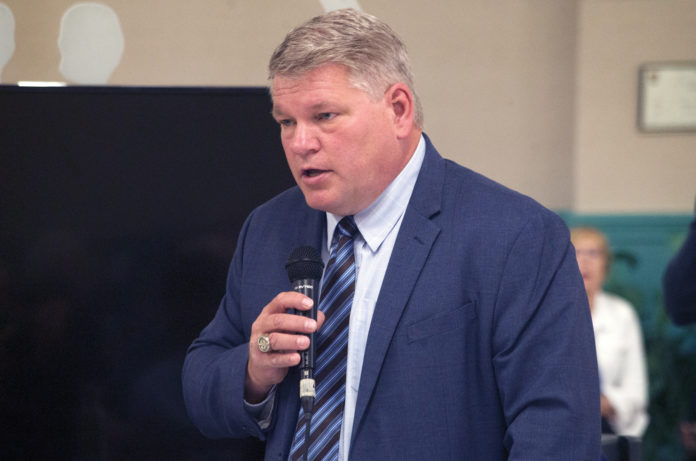
Two local MPs are taking on major roles in Andrew Scheer’s shadow cabinet. A ‘shadow cabinet’ is a term given to opposition MPs given the same portfolios as government ministers. They keep track of the same issues as critics, or shadow ministers, to hold the government accountable and present alternative perspectives on the same issues.
Scheer announced the Conservative shadow cabinet Friday. Prince Albert MP Randy Hoback was named the International Trade critic, while Desnethé-Missinippi-Churchill River MP Gary Vidal was given the Indigenous Services portfolio. One other Saskatchewan MP was named to the shadow cabinet. Kelly Block of Carlton Trail-Eagle Creek will oversee the public services and procurement file.
Hoback previously served as the US-Canada relations critic, while Vidal is a first-time MP.
“Our Conservative team is united, experienced and focused on finishing the job we started and replacing the Trudeau Liberals,” Scheer said in a press release.
“The Shadow Cabinet I have announced today reflects the growing strength of our team and our commitment to work for Canadians from coast to coast.”
As Critic for International Trade, Hoback takes on a portfolio that has significant consequences for Saskatchewan. As an exporting province, Saskatchewan relies heavily on international trade to generate economic wealth.
“It’s always an honour. This role is one that I’m going to greatly enjoy,” he said.
“I feel I have the experience and knowledge to assist and make sure that our constituents are taken care of.”
One of the biggest ticket items in the trade portfolio overlaps with Hoback’s previous shadow critic position. That’s the US-Mexico-Canada Agreement (USMCA), the NAFTA replacement negotiated earlier this year. It has yet to be ratified by the legislative bodies of the US or Canada. Mexico has ratified the deal.
“We’re in the process of trying to see when that’s going to move through the house of commons,” Hoback said.
“I’m curious to see what the gameplan is to move that forward. I’ll be actively engaged on that file to make sure that Canadians are properly represented. Right now I’m looking for … how they plan to implement it here in Canada and get it across the finish line.”
According to a Friday report from the Financial Post, the push to ratify the new deal is “getting there,” according to Mexico’s top negotiator.
Some tricky issues remain, though, as the US Democrats are insisting on stronger labour enforcement.
Mexico’s top negotiator was in Ottawa on Friday to meet with Prime Minister Justin Trudeau and Deputy Prime Minister Chrystia Freeland.
The main concerns relate to labour protections requested by US trade unions and others who fear the flow of work to Mexico. Mexican officials have refused a proposal that would allow US officials to inspect workplaces in Mexico to ensure compliance. According to the Financial Post article, it’s unlikely the deal will be ratified this year.
Hoback’s other main focus on the international trade file will be ensuring market access for Canadian companies. That includes resolving trade disputes with China over canola, India over pulses and Italy over durum wheat.
“These are products that are grown in Saskatchewan that because we don’t have market access costs us a lower price for our commodities,” he said.
“That directly impacts the amount of money farmers have to spend in their towns and communities. I want to see what the game plan is to get those tariffs lifted.”
The other industry currently being affected by tariffs is forestry. Hoback will also be working to get US tariffs on softwood lumber lifted to bring jobs back to the nation’s forestry sector.
“One of the things about trade, you always have to be focused on what’s best for Canadians as a whole,” Hoback said.
“It doesn’t mean we agree 100 per cent with how (the government) goes about conducting themselves and how they do things, but in terms of trade and expanding market access, Canadian companies can compete with anybody in the world provided they’re given a level playing field and the appropriate market access. I’m going to keep encouraging the government to move forward on a trade agenda that does just that.”
Other things that need to be taken into consideration include increased production costs, such as the carbon tax, Hoback said, though he added that the carbon tax falls under a different portfolio.

